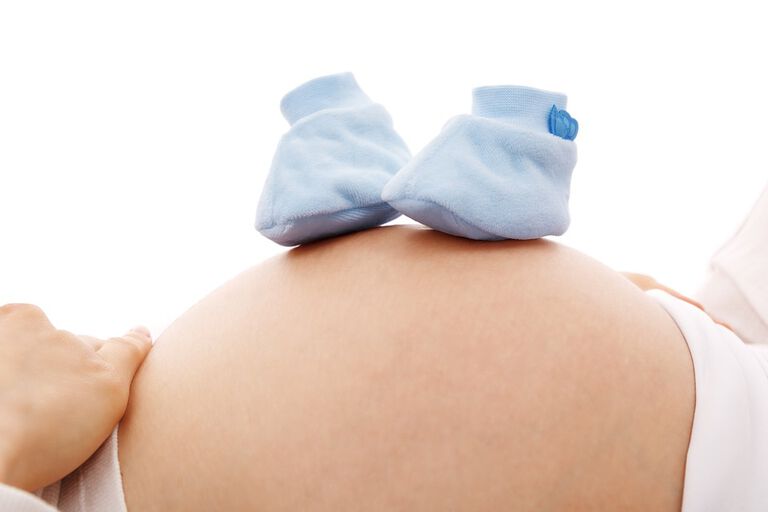SLEEP DURING PREGNANCY

Pregnancy causes changes in sleep that are almost universal and it’s a two way street; pregnancy affects sleep, and sleep affects the pregnancy to both mother and unborn baby. Concentrating on even small improvements in sleep can result in large improvements in the pregnancy journey and outcome.
A pregnancy is a huge physiological stress on a mother’s body, requiring more rest. However, the changes to the mother’s body and mind make this hard to achieve. Some of the sleep difficulties associated with pregnancy will be inevitable, but being prepared both physically and mentally and preparing your environment and lifestyle will help.
One study I looked at surveyed 2427 pregnant women where ALL 100% of them reported frequent night time awakenings. These night time awakenings are typical, and contribute to chronic sleep loss; mental and physical fatigue and stress. In that same study, 76% experienced poor sleep quality, 38% insufficient sleep at night, and 49% significant daytime sleepiness. Most women (78%) took daytime naps. The most common reasons women were woken in the night were;
- Nocturia (frequent waking to urinate) (83%), ranging from 72.3% at the start of pregnancy to 91.9% at the end, and;
- Difficulty finding a comfortable sleep position (79%), beginning with 56% at 8 weeks becoming almost universal (94%) by the final week.
Other than general quality and quantity of sleep, pregnancy tends to exacerbate other common sleep complaints like snoring and restless leg syndrome, that worsen over the duration of pregnancy. Other symptoms found to worsen across pregnancy are back pain, hip/pelvic pain, reflux, and leg cramps. The study above also described hunger (39.5%) and itchy skin (27.6%) to remain relatively constant throughout the pregnancy… What hope does one have?!
Various psychological factors influence sleep in pregnancy too, including vivid dreams (43.5%), as well as worrying about the baby (38.7%), pregnancy (38.0%), and labor/delivery (23.2%). Worrying about the baby/ pregnancy, and labor/delivery were all highly linked. Pain in the lower back and hip/pelvic pain were also linked. And both worry and bodily discomfort were associated with difficulty finding a comfortable position.
Changes in sleep occur as early as weeks 11-12, in the first trimester. Sleep time is often “increased” from pre-pregnancy levels, but with more awakenings and less deep sleep. Women are commonly sleepy during the day during the first trimester. The third trimester brings a decrease in sleep time and the second trimester seems to be when sleep is most efficient and satisfying.
Women tend to experience more sleep disturbances in their first pregnancy than in subsequent pregnancies.
WHY IS IT IMPORTANT TO YOUR PREGNANCY, AND HOW MUCH DO YOU NEED?
For the mother, chronic sleep loss worsens common complications of pregnancy, including prenatal depression, gestational diabetes and pre-eclampsia. Mums should consider 8-9 hours as a minimum target while pregnant, focussing on quality hours of sleep.
As we discussed last month, one of the biggest impacts that a lack of sleep has on anyone, at any stage, is its effect on mood and irritability. There are lots of studies that link emotional distress like anxiety and depression in pregnancy to self-reported sleep problems. In fact, poor sleep quality in early pregnancy predicts higher levels of depressive symptoms in later pregnancy.
The stress response (through the hypothalamic – pituitary – adrenal axis) has a number of flow-on effects to the mother. Sleep duration of less than 6 hours per night in early pregnancy is associated with an increased mean third trimester blood pressure (and pre eclampsia). The same inflammatory response affects the mother’s insulin resistance and sleep duration goes inversely hand in hand with blood glucose values. Each hour of reduced sleep time is associated with a 4% increase in glucose levels! Large studies have shown that sleep duration of less than 7 hours per night increases risk of developing gestational diabetes.
For the unborn baby, the mother’s chronic sleep loss and high stress load over the pregnancy can result in poor quality, longer labor with increased pain. In studies, it has influenced the type of delivery i.e. caesarean section, and increased the risk of low birth weight and preterm birth. In fact, it was found that an average sleep duration of less than 6 hours increased the number of emergency cesarean deliveries after a long labour by 4.5 times. Sleep duration of less than 8 hours per night did increase the risk of low birth weight. Interestingly even shift work, and its effect on melatonin and cortisol production, increase the risk of low birth weight by 27%.
Thinking optimistically about these grim stats, there’s an opportunity here to make a big health difference to your pregnancy by simply focussing on sleep.
SLEEP POSITION AND YOUR BABY; GETTING COMFORTABLE.
As discussed above, low back and hip/pelvis pain are almost universal, affecting up to 96% of women by the end of pregnancy. Women toss and turn and struggle to achieve the best position to support their changing body.
This doesn’t only affect the mother, but fetal behaviour in the uterus in late pregnancy is significantly affected by maternal position overnight. In studies they measure the behaviour of the fetus by its heart rate and a measure called fetal heart rate variability (FHRV). FHRV is simply a measure of the time between heart beats and how much it varies. The fetus adjusts its heart rate to match the amount of blood/oxygen it is getting from mum to deliver to its tissues. It is controlled by sympathetic and parasympathetic nervous system activity. A high (meaning reactive) FHRV is a good, healthy sign.
Why is this important? Well, there are several studies that have now confirmed the association between sleep position and risk of late intrauterine death or stillbirth. Women who sleep on their backs, (supine) put their babies at most risk of reduced blood flow via the placenta. When the placenta blood flow is slowed, the baby is under some mild hypoxic (low oxygen) stress.
Left is Best.
The left (and then right) lateral maternal sleeping positions tend to be the safest for the baby (seen by happy and reactive FHRVs). Sleeping on the left is optimal, as the weight of the baby and placenta are taken off the major vessels (including the inferior vena cava) that return blood from the mother’s lower half to her heart.
In saying that, it’s unhelpful to cause worry to mothers who wake up on their backs unexpectedly overnight!
It’s important to remember that in these studies, the average woman changed position NINE times overnight, and, the position mums went to sleep in were maintained for the longest overnight… so you can only do your best! Setting up your bed environment to encourage support in the left (or right) lateral positions is possible. Place a pillow between your knees to align your pelvis and prevent rolling, and adequately pad up your lower neck for comfort to reduce pain and stiffness. There are lots of memory foam products and pillows (of which Tempur has a superior range) that can be a great investment into quality pregnancy sleep positioning.
One of the studies I read looked at fetal movements specific to the time of night. It found that the hours between 21:00 and 01:00 saw the fetus at its most healthy in terms of movement and FHRV. Baby movements and FHRV states plateaued between 01:00 and 07:00.
The moral of the story? The hours before 01:00 are best for your baby, so go to bed early!
OTHER COMMON ISSUES IN PREGNANCY: MORNING SICKNESS
Morning sickness is very common in pregnancy, and those reporting it affects their sleep number as many as 49%, peaking at 12 weeks gestation. In early pregnancy as we said, women need more sleep so symptoms are exacerbated, i.e. those who are sleep-deprived have worse nausea and vomiting. It’s a bit chicken and egg though, as those feeling constantly nauseated will, of course, have trouble sleeping!
Appropriate foods and timing of foods is important. Food to settle the stomach early in the morning can help, and keeping up adequate fluids and electrolytes is vital. Simple carbohydrates like bread with salty spreads like butter or vegemite tend to be popular, as are electrolyte supplements like gastrolyte and hydralyte. Your doctor has a list of recommended anti-nausea remedies starting from the safest in pregnancy. There are several different ways to tackle nausea with pharmacological agents, so it’s worth working with your doctor to see how symptoms can be minimised.
Of course, decreasing lifestyle stress around this time is a massive help. Taking time off work when you need it to catch up on rest and sleep to keep symptoms at bay may ultimately shorten the number of days lost from work in total.
REFLUX
Reflux or gastro oesophageal reflux disease (GORD) occurs in 30—50% of pregnant women, and up to 80% in some populations. In the third trimester, well over half of all pregnant women experience frequent or constant symptoms, and only one quarter is spared of symptoms!
The reasons behind reflux in pregnancy are thought to be multifactorial, including a relaxation of the lower oesophageal sphincter secondary to sex hormones, increased intra-abdominal pressure due to the mass of the baby pushing up, and abnormal motility of the gastrointestinal tract. This may mean the process of food going through the oesophagus (peristalsis) is deficient so there is a prolonged clearance of food through to the stomach. The result is reflux of acidic stomach contents up to burn or cause discomfort in the chest and back of the throat. Stress also makes stomach contents more acidic.
Of course, lying down flat after dinner is often when reflux can cause most disruptions to sleep. There are many women who have tried various incline techniques to help via mechanical and gravity means to keep food and stomach juices down. My own sister reported that the lowest point her and her husband got to was a night out in the car! Their solution was to buy a memory foam wedge so she could sleep on an incline on her side of the bed. Makes me laugh… antisocial perhaps, but practical! A Tempur adjustable bed frame would have an ideal place here in allowing a gentle head incline. The memory foam of a Tempur mattress allows it to bend with the shape of the bed frame beneath.
SO IN SUMMARY WHAT CAN YOU DO?
Pregnancy is a time of increased physiological stress that affects maternal sleep. In turn, chronic sleep loss results in an increased stress load response that affects the pregnancy. For mothers sleep, deprivation can result in increased feelings of irritability, anxiety and depression, poor glycemic control, and high blood pressure, and for the baby, it can result in longer labours and high risk of c-section, low birth weight, and preterm birth.
We can think about stress and insomnia in terms of the ‘3P’ model (predisposing, precipitating, and perpetuating factors. Some predisposing factors to stress in life are difficult to modify, but they way they are perpetuated and affect your sleep in this pregnancy certainly can be.
Some of the lifestyle intervention strategies may be to arrange suitable work hours, minimise odd shift work allowing you to get to bed earlier (at 21:00 – ha!). Creating a supportive sleep environment and positioning aids will ensure you can be comfortable in the lateral position (ideally on the left), using a pillow or memory foam supports. And if necessary, considering investing in an adjustable bed for minimisation of reflux symptoms.
If suffering from morning sickness, aim for adequate sleep and to preempt symptoms early, by taking preventative food and/or medication. As always, speak to your doctor about suitable non-pharmacological and pharmacological remedies. Take leave from work early to catch up on rest and sleep, to prevent worsening symptoms.
Continuing healthy amounts of exercise through pregnancy will improve circulation, mood, body weight control and promote quality sleep. Also, ensure you abstain from alcohol and cigarettes which are detrimental to sleep quality.
Sleep in pregnancy offers a great opportunity to focus on really good self-care habits that can really help your pregnancy and your baby.
Further Reading:
Mindell JA, Cook, RA Nikolovski J (2015) Sleep patterns and sleep disturbances across pregnancy, Sleep Medicine 16 pp 483–488
Palagini L, Gemignani A, Banti S, Manconi M, Mauri M, Riemann D; (2014) Chronic sleep loss during pregnancy as a determinant of stress: impact on pregnancy outcome, Sleep Medicine 15 pp 853–859
Sedan I, Cameron E, Madigan S, Tomfohr-Madsen L (2018) Sleep quality during pregnancy: A meta-analysis, Sleep Medicine Reviews 38 pp168-176
Stone P, Burgess W, McIntyre J, Gunn A, Lear C, Bennet L, Mitchell E, Thompson J; (2017) An investigation of fetal behavioural states during maternal sleep in healthy late gestation pregnancy: an observational study, J Physiol 595.24 pp 7441–7450
Volkovich E, Tikotzky L, & Manber R; (2016) Objective and subjective sleep during pregnancy: Links with depressive and anxiety symptoms. Archives of Women’s Mental Health, 19, pp173-181
Zsamboky ML (2017); Sleep and Pregnancy: Understanding the Importance International Journal of Childbirth Education, Vol 32 Num 1 pp22-24
Feel it for yourself
Find a Tempur store or Stockist and try out our range of mattresses for yourself




